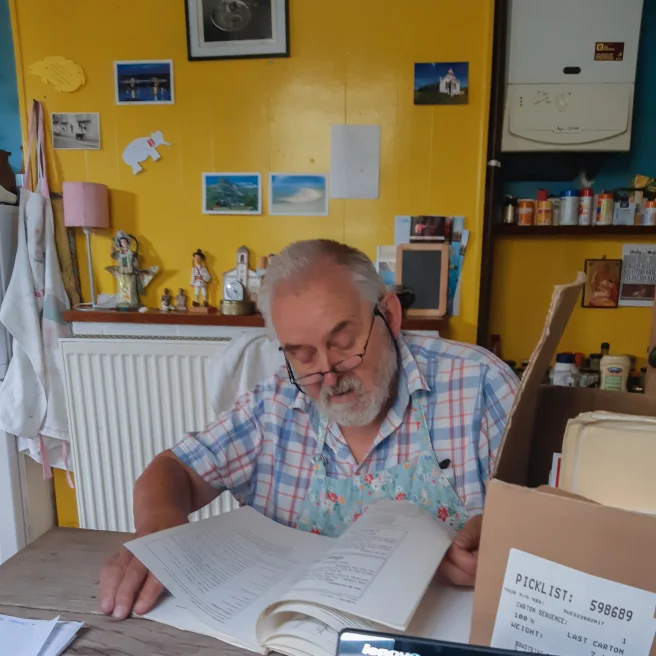Second language acquisition researcher, Patsy Lightbown, joins us to discuss how languages are learned, and also, how they aren’t. We hear about problems of training teachers, how learners overcome challenges and aspects of language teaching which still lag years behind research.
The Downsides to Speaking (with Professor Stephen Krashen)
Students need to speak to learn a language and the more students talk, the more they learn. Not according to Professor Stephen Krashen. For 40 years he has championed the concept that what students should be doing in class is reading (and listening), not speaking. In this episode, Stephen tells Ross some of the arguments against forcing students to speak, something which might not just be inefficient, but in some cases counterproductive.
Building the Perfect Coursebook (with Professor Brian Tomlinson)
The Power of Fluency (with Paul Nation)
Teaching Phonics (with Lesley White)
Letterland teacher trainer Lesley White tells Ross about phonics. We touch on the history, the advantages of phonics over other approaches, different options to teachers within the phonics system and some of the differences between learning to read in your first language and in your second language.
5th Anniversary Podcast: The Best Language Learning Activities Known To Mankind
We break our record for the most guests on one show ever! Hear experts from the TEFL industry with over 200 years of collective experience share their favorite language learning activities. We speak with Edmund Dudley, John Hughes, Matt Courtois, Brian Tomlinson, Ben Beaumont, Dave Weller, Wendy Arnold, Debbie Hepplewhite, Ray Davila and Diederik Van Gorp and ask them all the same question: “What’s your favorite language teaching activity?”
Podcast: What is Phonics and Why Should You Care? (With Debbie Hepplewhite)
Ross interviews phonics expert, Debbie Hepplewhite MBE about what phonics is and why it’s so important. Debbie tells us about vocabulary enrichment, the importance of recycling, why English is so difficult to read, and much more. Debbie has worked as an adviser to the British Government for the parliamentary inquiry ‘Teaching Children to Read’ (March 2005) and she helped to inform Sir Jim Rose’s ‘Independent review of the teaching of early reading’ (Final Report, Jim Rose, March 2006) and in 2012 was awarded an MBE from the Queen for services to education.
Stages and Stories in Second Language Acquisition (with Stephen Krashen)
What stages do students pass through in learning a language? Stephen Krashen, Professor Emeritus at the University of California, tells us about the conduit hypothesis. We discuss the role of reading, the growing importance of listening and how to encourage students to read and acquire more through comprehensible input.
How to Plan Lesson Aims and Why (With Dave Weller)
Podcast: Are Robots Taking Over Language Assessment? (with Dan Elsworth)
Podcast: EFL's Love/Hate Relationship with Grammar (with Matt Courtois)
4th Anniversary Podcast: What Have You Learned From Learning a Language
We meet with friends, family and special guests to hear about how language learning experiences affect and inform our views of language learning. In our longest podcast ever, we hear from Patsy Lightbown, Professor at Concordia University Canada about language learning experiences in Africa and North America; from teaching guru Ben Beaumont, from Trinity College London about the trauma of learning French at high school; from Janice Thorburn, former German and French teacher about learning German through grammar-translation and what that meant for her teaching later in her career; from our regular podcast guest Matt Courtois, about language immersion in Nepal, Russia, China and Bolivia led to very different outcomes; and from author and teacher trainer Wendy Arnold about how in spite of being a native English speaker in Peru, she failed her English exams at school.
Podcast: Inside the World of Test-Prep in China
Podcast: Mutilate Your Coursebook! A Guide to Adapting Teaching Materials
Challenge, Conflict and Cooperation in Online Education (with Simon Galloway & Dave Weller)
Episode 75! What's The Best Way to Learn a Language (With Dave Weller)
For our 75th episode, we discuss a question which is both very simple and highly complex: What’s the best way to learn a language? We challenged each other to fit everything we could about language learning onto a single page of A4 paper, then compare our notes in a marathon 60-minute discussion. For maximum effect, prepare your own notes on “What’s the Best Way to Learn a Language” before you listen.
Technology in Language Education Part II - Fad? (with Ray Davila)
The second of our two-part special on technology in the classroom, with Ray Davila, where we discuss the drawbacks of the increasing involvement of technology in education. We talk about what gets neglected instead of technology (where did the budget for those interactive whiteboards come from anyway?!), the effects on how teachers are assessed and evaluated and if technology might eliminate the need to learn a language altogether in the near future…
Technology in Language Education Part I - The Future? (with Ray Davila)
Context – Tyranny or Triumph (with Diederik Van Gorp)
All language lessons need a context. Language must be learned and practiced in context. Without context, students cannot remember or use new vocabulary. You've probably heard these arguments before (possibly on this podcast), but are they true? We discuss the pros and cons of context with our friend and teacher trainer (and former many other things!) Diederik Van Gorp.























